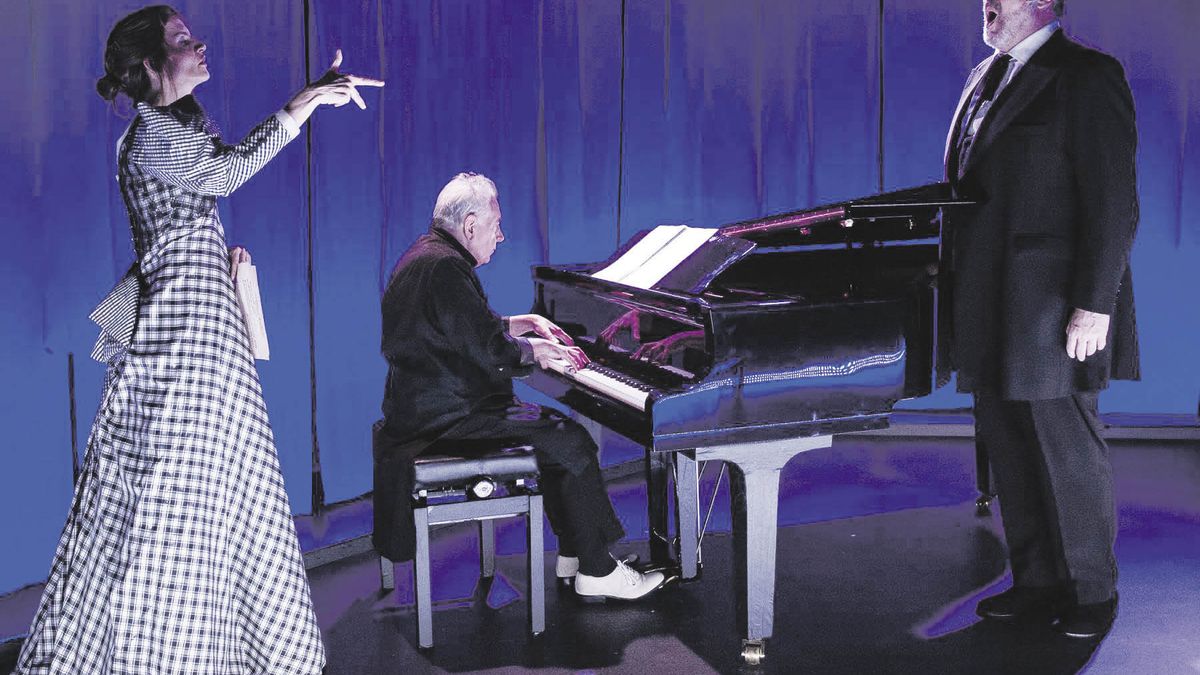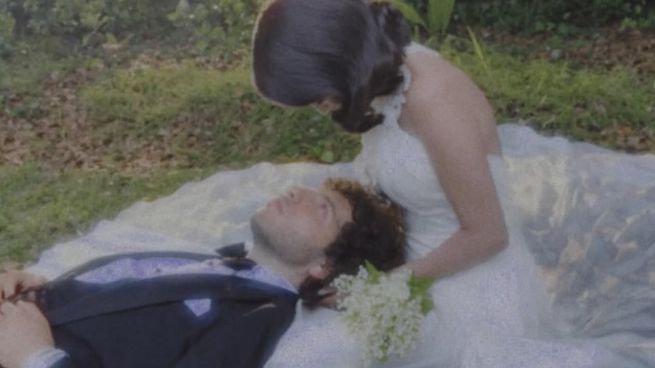Clara suffers her story on stage and the viewer can only be grateful: an artistic journey to the 19th century, like this one, cannot be more than welcome. Clara suffers from her story although she does not fail to demonstrate that, of all the men, and especially of all the geniuses that surrounded her, she was the strongest, the wisest and most attached to the land. If there is an idea that reinforces the work of Betty Gambertes and Diego Vila (directed by the latter) it is that, in German Romanticism, men lived attached to death and women to life. Only in Romanticism?
Robert could not survive without laudanum; he attempted suicide before going insane, and — legend has it — he invented a device to immobilize his ring finger in order to give the rest of his fingers more agility when playing the piano, which accelerated his dementia. He died, admitted to an asylum, at the age of 46. Clara fought against everything, she was a virtuoso, performer, arranger and composer, and she had 8 children and 10 pregnancies.
Although no music lover ignores the fundamental role of Clara in the musical history of the 19th century, the “air of time” imposes that some of the lines of the work, not too many, yield to a certain contemporary didactics. But it is understandable that this is so. The cinema brought her life to the screen several times (there was even a version during the Nazism, “Träumerei”, 1944), but none did it true justice.
One of the most defining phrases is taken from one of his diaries. Clara, feeling sorry for Robert, when talking about a spectator, refers to “that idiot who thought of asking my husband: are you a musician too?”. Of course, the famous one was her, a pan-European pianist and composer. Robert did not give public recitals. The other note, the only touch of humor in the work, occurs when Clara states, shortly after meeting Brahms, that she “wants to have a threesome”. She of course, she refers to composing a trio for piano, violin and cello, although the joke is not without its scope. She lived for those two men: she loved both of them deeply, although the difference —to follow her words— was established by the passion for the first, and the intellect for the second, even when it was a loving intellect.
Eduardo Delgado’s piano magnificently illustrates the different plot and emotional passages of the story, and another luxurious presence is that of Maestro Víctor Torres, who performs six lieder, mostly from the youthful “Dichterlieder”, the poet’s loves dedicated by Robert to Clara, and, of course, the “Ich stand in dunklen Träumen”, opus 13 N.1, by Clara herself, whose lyrics, even though they are by Heinrich Heine, seem to have been written by herself to everyone she loved: “Immersed in dark dreams, / I stared at his portrait, / and the beloved face / took mysterious life. /Tears arose/and ran down my cheeks. / I can’t believe / that she lost you.”
“Who is Clara Wieck?”, by B. Gambartes and D. Vila. Dir.: D. Vila. Int.: A. Dutoit Argerich, E. Delgado, V. Torres. San Martin Theater, Cunil Cabanellas room.
Source: Ambito
David William is a talented author who has made a name for himself in the world of writing. He is a professional author who writes on a wide range of topics, from general interest to opinion news. David is currently working as a writer at 24 hours worlds where he brings his unique perspective and in-depth research to his articles, making them both informative and engaging.




